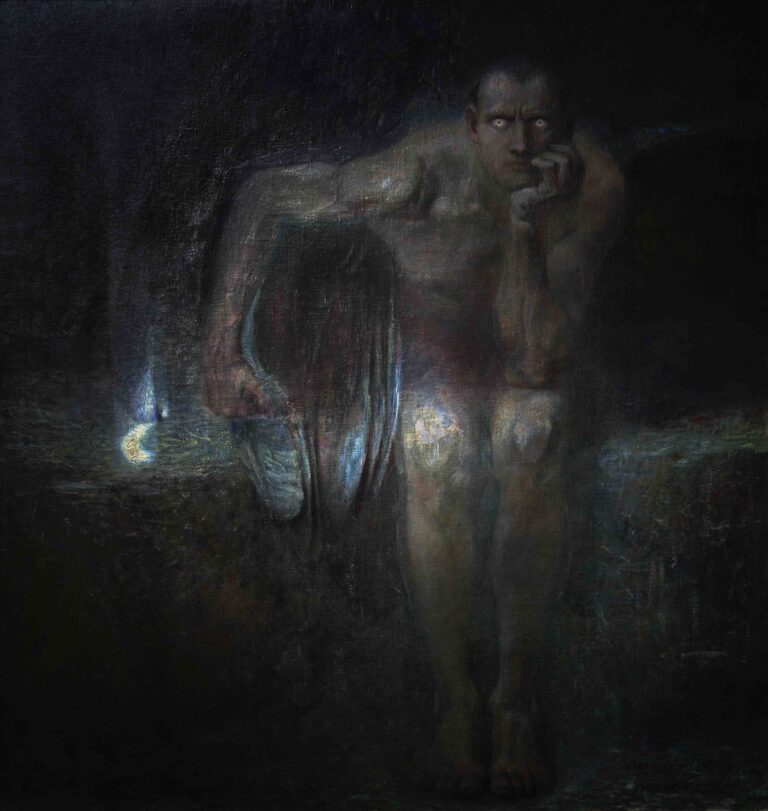2 Corinthians 11:14, “…even Satan disguises himself as an angel of light.”
“The Devil hath power to assume a pleasing shape.” This line, penned by William Shakespeare in his iconic tragedy “Hamlet,” encapsulates a profound and timeless idea: the inherent capacity for evil to disguise itself into alluring or seemingly benign forms.
In “Hamlet,” the eponymous character grapples with the appearance of his father’s ghost, questioning whether it is indeed the specter of his deceased father or a fiend in disguise sent to tempt and torment him. Hamlet muses on the nature of deception, acknowledging that malevolence can present itself not as something grotesque and terrifying but as something enchanting and agreeable. This concept transcends the realm of the play and resonates universally. The idea suggests that evil, corruption, and malice do not always announce themselves with obvious signals; they can be cloaked in beauty, charm, and friendliness. It serves as a cautionary reminder that not everything that appears good and trustworthy warrants our uncritical acceptance.
The Bible is not unaware of this concept; in fact, 2 Corinthians 11:14 warns, “And no wonder, for even Satan disguises himself as an angel of light.” Additionally, Matthew 7:15 admonishes us to “Beware of false prophets. They come to you in sheep’s clothing, but inwardly they are ferocious wolves.” Finally, Galatians 1:8 states, “But even if we or an angel from heaven should preach a gospel other than the one we preached to you, let them be under God’s curse!”
But Satan and evil are not saddled with the entire load; mankind is more than willing to contribute. 1 John 3:19-20 exposes this idea when it states, “…light has come into the world, and people loved the darkness rather than the light because their works were evil. For everyone who does wicked things hates the light and does not come to the light, lest his works should be exposed.” Proverbs 2:14 goes even further by identifying man as “[Those] who rejoice in doing evil and delight in the perverseness of evil.”
To build on this premise, it is not God who tempts us unto evil as James 1:14-15 advises, “…each person is tempted when he is lured and enticed by his own desire. Then desire when it has conceived gives birth to sin, and sin when it is fully grown brings forth death.”
Of course, scripture warns of the consequences, even addressing the condition of our modern world. Isaiah 5:20 says, “Woe to those who call evil good and good evil, who put darkness for light and light for darkness, who put bitter for sweet and sweet for bitter!”
We see this everywhere today, as we’re constantly forced into discerning disguised (even joyful) evil.
Without question, believers have inherent protections against wickedness where 1 John 4:4 announces, “…you are from God and have overcome them, for He [the Holy Spirit] who is in you is greater than he [Satan] who is in the world.”
However, the redeemed need to be aware that they can also be deceived and succumb to the Devil’s schemes by giving in to a common human weakness: unforgiveness.
2 Corinthians 2:10-11 warns, “…indeed, what I have forgiven, if I have forgiven anything, has been for your sake in the presence of Christ, so that we would not be outwitted by Satan…” Additionally, Ephesians 4:26-27 confirms, “…do not let the sun go down on your anger, and give no opportunity to the devil.”
The point is simple: continue to discern evil’s disguises; however, as horrified and disgusted as you may be, remain forgiving, recognizing as 1 Timothy 2:3-4 states, “[God] desires all people to be saved and to come to the knowledge of the truth.”
Without that attitude, you, too, may be “outwitted by Satan.”








